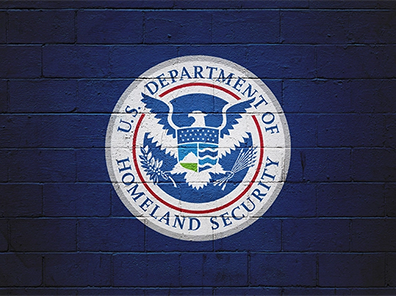
On October 17, 2022, the Center for Immigration Studies submitted a public comment analyzing the U.S. Department of Homeland Security’s (“DHS”) proposal to update the regulations governing the work authorization verification process (also known as the Form I-9 process). DHS’s proposal would allow the secretary of Homeland Security to impose more lenient procedures to allow employers to verify the work authorization status of their new hires remotely.
DHS cited the “rapid shift to telework and remote work” in response to the Covid-19 pandemic as the primary incentive for proposing this rule, stating that DHS recognizes that many employers have maintained these flexibilities with their staff “by choice rather than necessity”. As a result, DHS reported that it is exploring “making permanent some of the COVID-19 pandemic-related flexibilities” to examine employees’ identity and employment authorization documents for the Form I-9, as well as other undisclosed alternatives.
Since March 2020, DHS has permitted many American employers to defer the in-person inspection of identity and work authorization documents by inspecting such documents remotely (e.g., over video or email) within three days of an employee’s first day of employment. DHS initially applied this guidance only to employers and workplaces that were operating remotely, but later permitted remote document verification for any recent hire who planned to work exclusively in a remote setting due to Covid-19-related precautions. DHS extended these leniencies repeatedly through fiscal year 2022. The most recent extension expires October 31, 2022.
CIS submitted a public comment analyzing DHS’s NPRM, explaining that CIS opposes any extension of remote document inspection until reforms are put in place to strengthen the integrity of the work authorization verification process. CIS explained that the antiquated Form I-9 process is vulnerable to document and identity fraud. Remote document inspection procedures, troublingly, “increase the likelihood that an employee will present fraudulent documents to support their claim of work authorization ... [and] will give corrupt employers cover to hire unauthorized workers in violation of statute.” CIS advised DHS to protect the interests of American workers, including work-authorized aliens, by implementing reforms to:
- Require E-Verify participation;
- Limit acceptable forms of identification to documents DHS can authenticate;
- Resume and expand worksite enforcement efforts; and
- Rescind DHS’s overbroad non-enforcement policies.
Additionally, while CIS supports DHS’s plan to provide work authorization verification and fraud-detection trainings to employers, CIS emphasized that training alone will be insufficient to ensure the integrity of the work verification process.
Finally, CIS reminded DHS that it cannot hide the ball with regard to what procedures it will require. Because the agency failed to disclose what specific changes to the Form I-9 process would be implemented under this proposed rule, DHS will be required (again) to provide the public with notice and a reasonable opportunity to comment on any such changes through what is known as “notice-and-comment” rulemaking.
As DHS leadership has repeatedly acknowledged, employers who hire unauthorized workers often violate other employment and labor laws, including those related to anti-discrimination, health, and safety. Widespread E-Verify use and worksite enforcement, therefore, are two of the best tools DHS has to enforce both immigration and labor laws protecting domestic workers, and should be prioritized when considering any reform to modernize the Form I-9 process.
